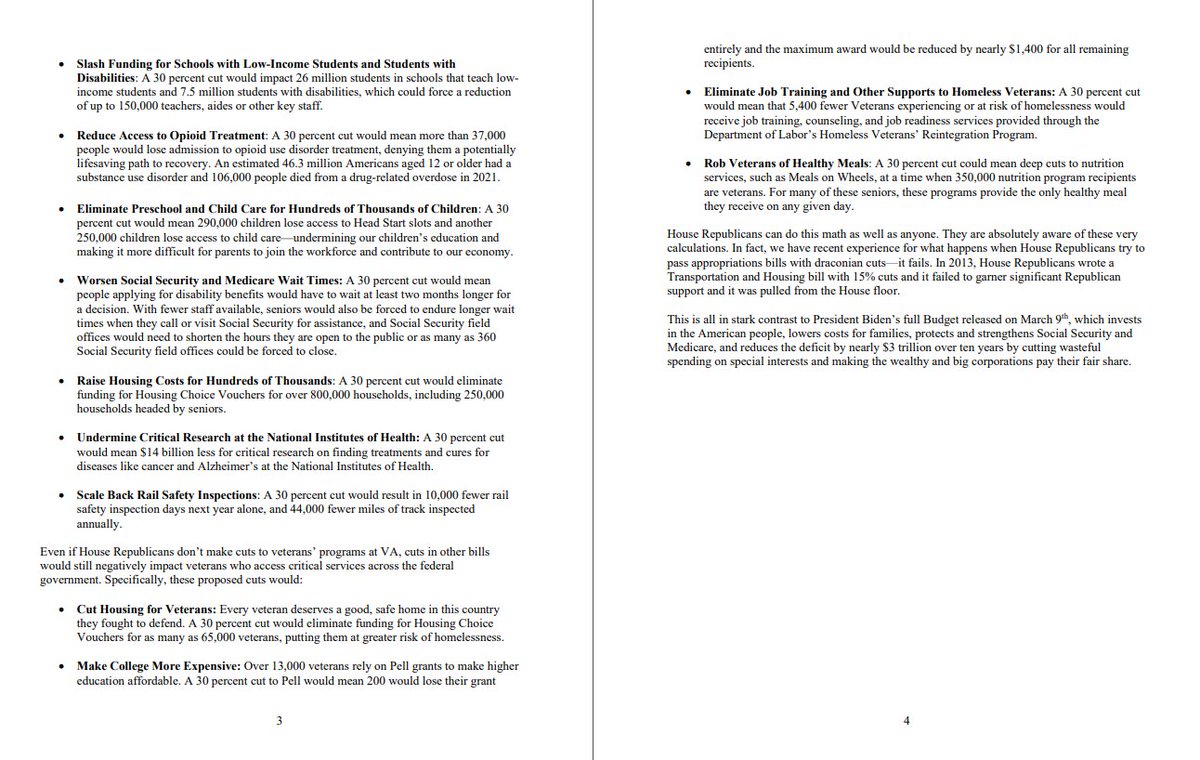Quick bare-bones Motion to Vacate procedural explainer. 1/
A motion to vacate the Office of the Speaker would be brought in the form of a resolution. If the resolution was introduced in the normal manner, it would simply be referred to the Committee on Rules, as H.Res.395 was when Meadows introduced it in 2015. 2/




If the resolution was offered from the floor as a Question of Privilege, it would be eligible for immediate consideration. Indeed, a Question of Privilege is one of the few ways an individual Member can unilaterally bring something to the floor. 3/
https://twitter.com/mattglassman312/status/1175419902628380672
When a member offers a Question of Privilege, it gets immediate consideration if offered by the majority leader or minority leader. For anyone else, the Chair can defer consideration for up to 2 legislative days. Here’s Garcia noticing his Santos expulsion QoP resolution: 4/


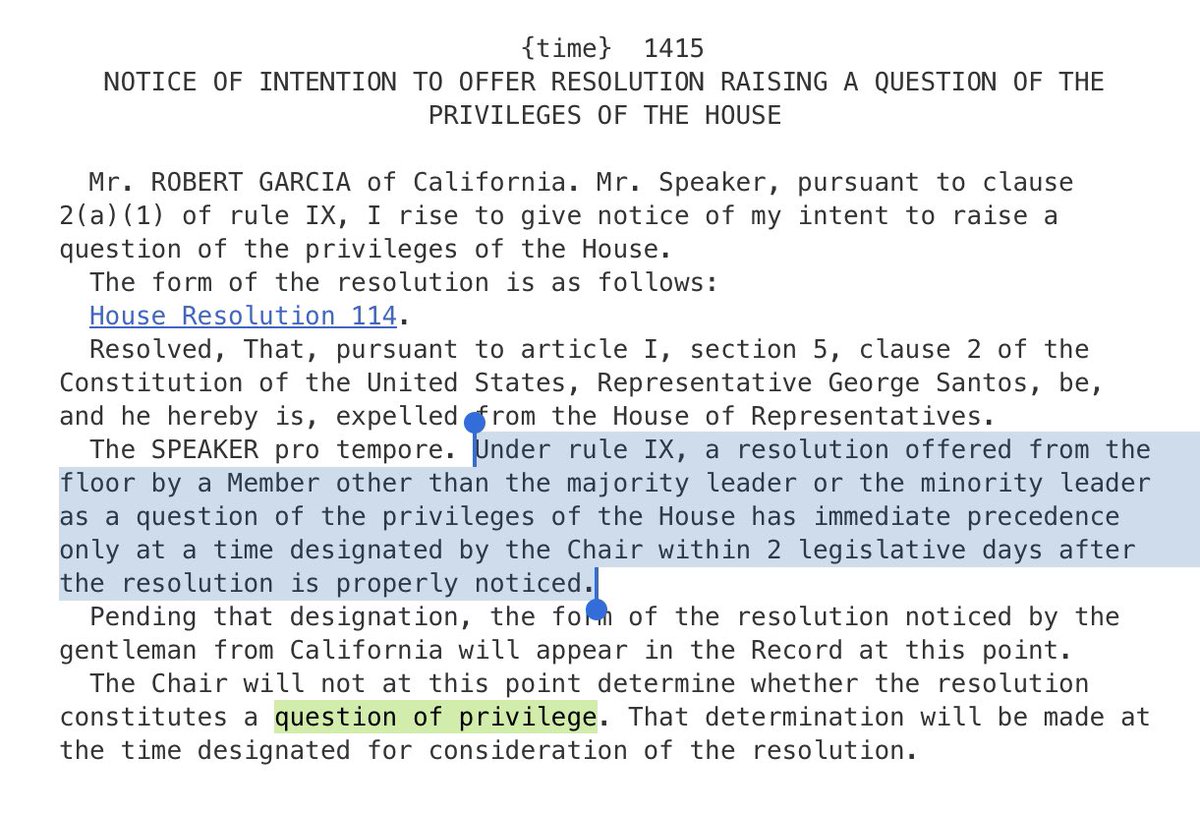
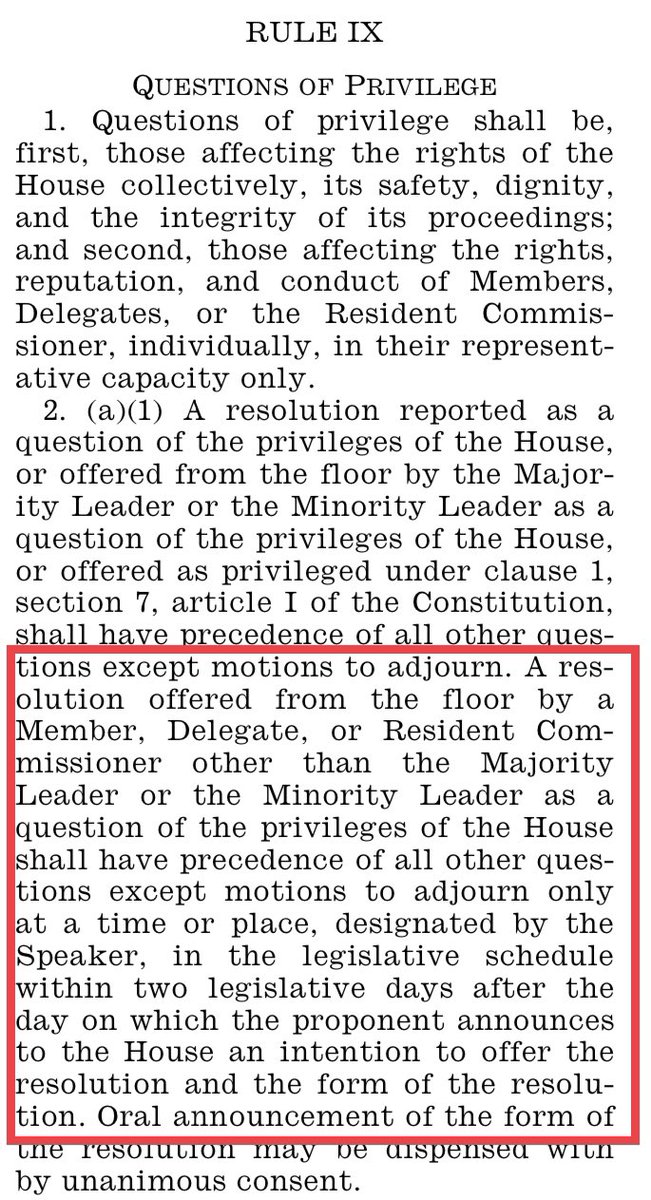
When consideration does occur, the Chair first determines if the resolution constitutes a question of privilege. The Chair might entertain debate over this, but will eventually make a ruling. The ruling can be appealed. 5/


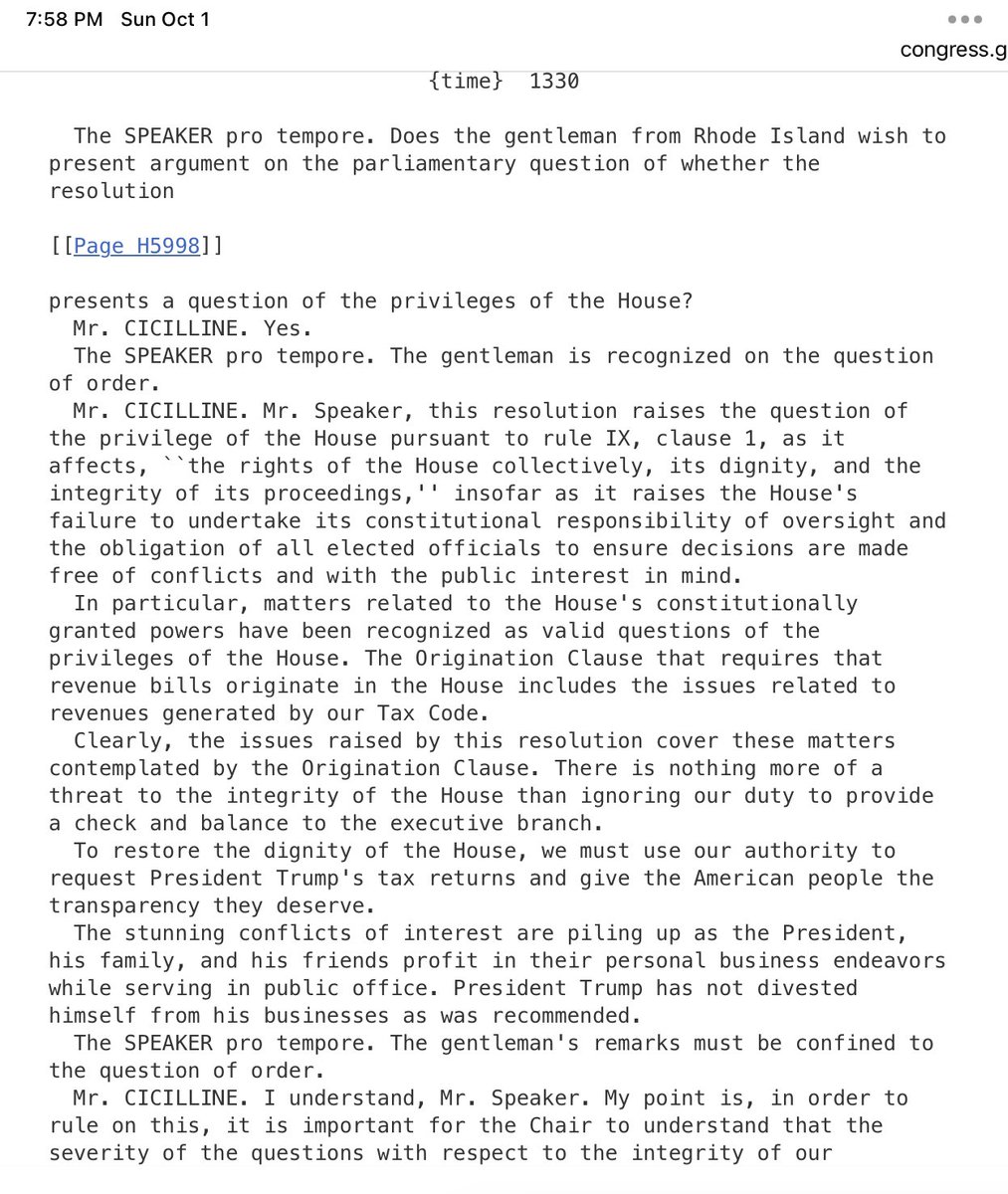
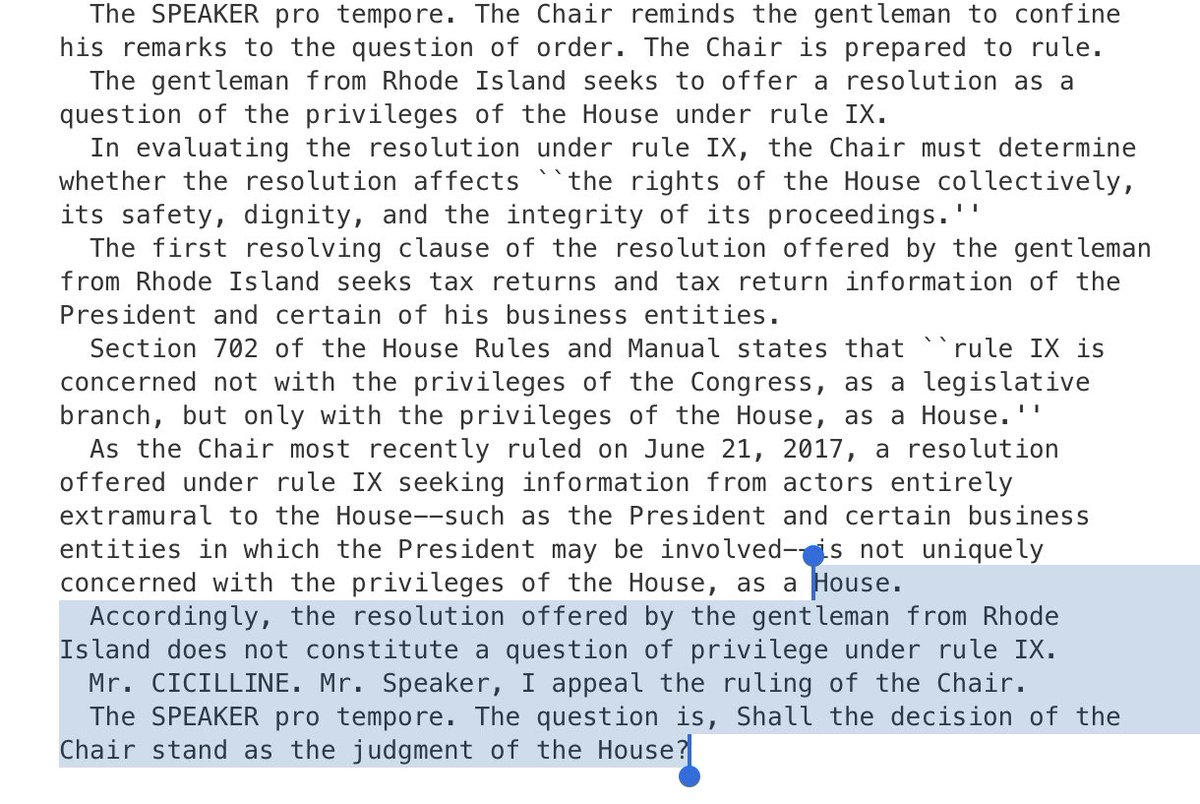
If the Chair rules the resolution constitutes a Question of Privilege (Gaetz’s resolution will constitue a QoP), consideration takes place under the Hour Rule. Prior to recognizing Gaetz for debate, opponents will have options to try to dispose of the resolution. 6/
The fastest way to dispose of it would be to move to table the resolution. The motion to table in the House is non-debatable, and thus would receive an immediate vote. A successful motion to table would kill the resolution and end consideration. This is the fate of most QoPs. 7/ 

Another option would be a motion to refer the resolution to a committee. This motion is debatable, so the Member moving it would need to successfully move the previous question before they could get a vote on the motion to refer. 8/ 
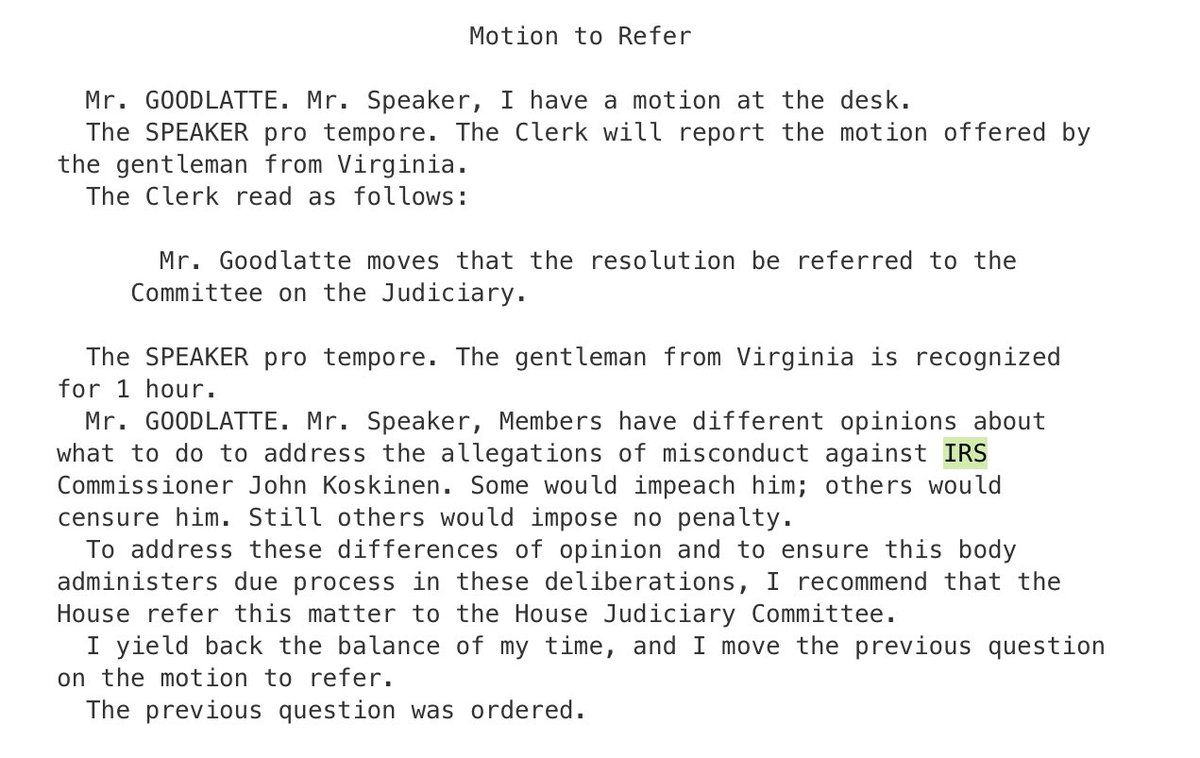
Both the motion to refer and motion to table could be tried; the motion to table has precedence, but neither excludes the possibility of the other. Members could also demand the yeas and nays and get record votes on these motions. 9/
It’s also possible to make a motion to postpone consideration of a QoP. 10/
If none of these methods of disposal are successful, debate would begin on the resolution, under the hour rule, with time equally divided between the proponent of the resolution (Gaetz) and either the majority or minority leader,or their designee, as determined by the Chair. 11/ 
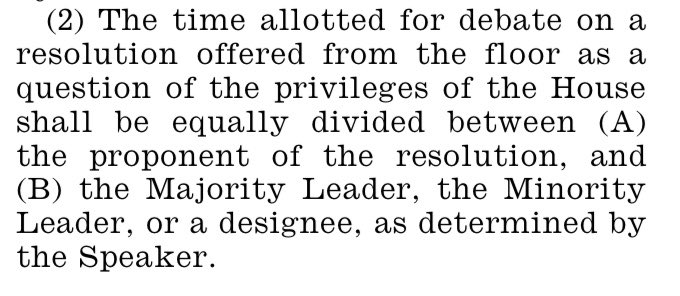
At the end of the hour, the proponent of the resolution could move the previous question on the resolution in order to cut off further debate and, if successful, would setup a final vote on the resolution, subject to motions still available after the PQ (commit, adjourn). 12/
None of this, of course, touches the politics of the present issue, which are wide and varied.
But I think that’s all there is to the procedural basics. If any fellow parliamentary nerds see anything I’m missing or got wrong, please speak up. /end
But I think that’s all there is to the procedural basics. If any fellow parliamentary nerds see anything I’m missing or got wrong, please speak up. /end
• • •
Missing some Tweet in this thread? You can try to
force a refresh

 Read on Twitter
Read on Twitter


